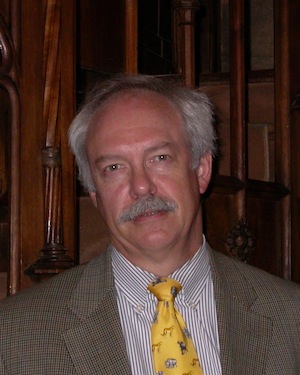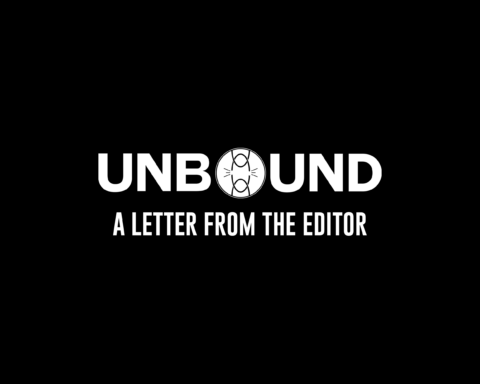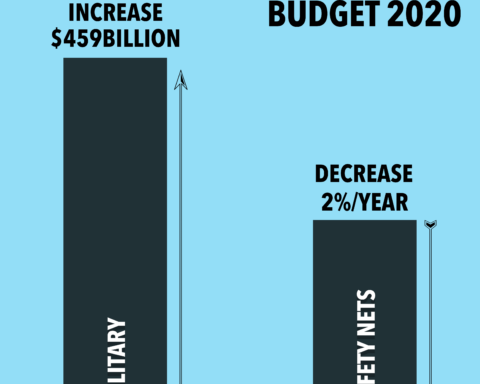Where does the Reformation impulse go today?

Back in June, at the unexpected urging of two Korean-American presbyteries, the 2014 General Assembly of the Presbyterian Church (U.S.A.) voted to celebrate the 500th Anniversary of John Knox’s birth by remembering aspects of the life of Scotland’s Reformation leader. The Committee dealing with the matter, however, turned down an amendment to note John Knox’s contribution to the unifying role of Protestantism in British history, and the General Assembly took no official notice of the Independence vote, now tallied at 55% NO, which could have separated Scotland legally from England, Wales, and Northern Ireland. Though my evidence is anecdotal, as the September 18 vote grew closer, more members of the Presbyterian Church (U.S.A.) who cared about their Scottish ancestry (40% of the church) verbally supported the NO position, finding it difficult to picture Scotland apart from a web of historical and practical connections.
Those Korean-American Presbyterians exemplify some of the worldwide influence that John Knox continues to have, even if it is an often hidden internationalist strand in the Presbyterian churches that derive from the faith carried by Scottish immigrants, missionaries, and their descendants over the globe. This article looks at Knox as part of a heritage both Scottish and internationalist that was affirmed in the NO vote on Independence, and also looks at the contribution the Church of Scotland, the Kirk, made in the debate. It is my own also-anecdotal impression that many of the Scottish pastors favored the hopes of a more progressive, “independent” Scotland, but the church stayed officially neutral while hosting 32 forums and several debates on the matter.
___________________________________________
The strength of the Kirk’s report now is that without being tied to either YES or NO camps, it may help Scots and their friends abroad consider the meaning and even mission of a country.
___________________________________________
To return to the US General Assembly in June for a moment: for Presbyterians following events in Scotland the vote to ignore the Independence debate was an opportunity missed, a decision to put Knox under an ecclesiastical bushel and to ignore a question of national unity with significant international consequences. If the Scottish National Party had prevailed, separatist movements across Europe (Catalonia in Spain, Belgium, Northern Italy, Ukraine…) would have all gotten a boost.

The Korean-American Presbyterian overture focuses on the piety of John Knox, author of the Scots Confession and a leader of the Scottish Reformation, but it takes no notice of his fiery patriotism and sometimes intemperate international diplomacy on behalf of the Protestant cause. They see Knox as a kind of revivalist, while he seems to me more of a movement and opinion leader, operating in both England and Scotland, and serving congregations of Protestant exiles in Germany and Switzerland before becoming pastor of St. Giles cathedral in Edinburgh.
Knox’s views on the rights of “lesser magistrates” and citizens to correct the abuses of kings and queens and insist on the moral duties of governments contributed to the ethos underlying the American Revolution. But a commissioner objected that the amendment to consider the “public impact” of Knox and the Independence debate was just “politics,” and no one spoke up to challenge her. Reformation leaders in the 16th Century were not so insular.
So this brief article tries to give the real John Knox a little respect, and to honor as well the fine work of the Church of Scotland to deepen the discussion of what an Independence vote might mean, culminating in a report, “Our Vision: Imagining Scotland’s Future”. The strength of the Kirk’s report now is that without being tied to either YES or NO camps, it may help Scots and their friends abroad consider the meaning and even mission of a country. And while John Knox himself would not have shied away from polarization, we can see him and the continuing values of his church on both sides of the referendum.
___________________________________________
In comparison to the larger nationalistic and economics-focused debate, the church report disavows “tribalism” and market-rule.
___________________________________________
The Church of Scotland report, “Our Vision,” from its Church and Society Council, focuses on values and vision to provide answers to the basic question, “What kind of Scotland do we want to live in?” The top ten values named by participants may, in my opinion, sum up the current Presbyterian ethos: 1. Equality, 2. Fairness, 3. Justice, 4. Education, 5. Respect, 6. Honesty, 7. Community, 8. Opportunity, 9. Compassion, and 10. Tolerance. The Church and Society Council used research methods (including word count analysis) to sort 3741 ideas into 617 themes, and then to group these into 6 broad areas, each of which was given a particular “theological reflection.”

The six idea groupings were: “Economy and Employment,” “Public Services,” “Nurturing Inclusive Communities,” “A Sustainable and Connected Scotland: Transport, Energy, Environment, and Infrastructure,” “Good Government,” and “Live out Gospel: Societal Values.” The proposals were largely communitarian (rather than individualistic or libertarian) in approach, and this sometimes translated to de-centralization, though there was a clearly a sense of national unity and little hostility to government per se. The Theological Reflection sections use Old and New Testament as well as cultural references, from Robert Burns’ satirical “Holy Willie” and T.S. Eliot’s Choruses from the Rock to climate change and Pope Francis.
In comparison to the larger nationalistic and economics-focused debate, the church report disavows “tribalism” and market-rule, though it shares with some of the pro-Independence advocates the idea of a Scotland more similar to the Scandinavian countries. Pro-Independence arguments also built heavily on a Norway-style use of North Sea oil by a sovereign Scotland, while “Our Vision” stresses “renewables” and mentions “Eco-congregations.” (It could be argued that Margaret Thatcher, the Tory Prime Minister who fed inequality in Britain, was enabled precisely by that North Sea oil revenue).
Two quotes may sum up the spirit of the church’s “Our Vision” report:
A limerick from the Glasgow West End Churches:
“There should be a salary cap,
Since twixt rich and poor there’s a gap,
Tax the rich till they rage,
Pay just a living wage,
And we’ll put Scotland back on the map!”
A sense of past and future from The Abbey Church in Dunfermline:
“Invest in new and innovative ideas and ventures. Recapture the creative and inventive spirit that enhanced the whole world.”
To understand the referendum debate in Scottish society, it is important to see stages in the “devolution” of power from Westminster (their Washington, D.C.) to a Scottish parliament following an earlier referendum in 1997. That earlier stage in devolving sovereignty was backed by the Labour Party, which had been dominant in Scotland over the Conservative and much smaller Liberal parties. Now the Labour Party was a main backer of the “Better Together” campaign against full separation. The argument of the YES campaign was backed above all by the Scottish National Party (SNP) which claims to champion a stronger social welfare state and until recently nuclear disarmament, though it now favors remaining in NATO (with NATO’s weapons). Those opposing Independence were often concerned about the costs of the divorce and whether it would be anachronistic, given so much shared culture and identity—and yes, faith—in the years since 1707. The Scottish and English crowns were actually united in 1603, and John Knox was involved in earlier struggles to obtain or keep Protestant monarchs in both countries.
 Despite the victory of the NO side, the concerns that fueled the Independence drive do not go away. Has the North Sea oil functioned partly as a “resource curse” for Britain, distorting the development of Scotland in particular while aiding globalization? Does the dominance of Southern England lead to the treatment of parts of Scotland (and other areas) as “sacrifice zones” of social and economic abandonment? Independence represented resistance to the austerity policies that prolong unemployment and reinforce inequality in Britain and the European Union. For now, however, that resistance will have to seek allies throughout Great Britain. But Scotland’s leverage and influence have always been proportionately larger than its economic and political strength. I personally hope the Scottish Church’s values will be part of that influence.
Despite the victory of the NO side, the concerns that fueled the Independence drive do not go away. Has the North Sea oil functioned partly as a “resource curse” for Britain, distorting the development of Scotland in particular while aiding globalization? Does the dominance of Southern England lead to the treatment of parts of Scotland (and other areas) as “sacrifice zones” of social and economic abandonment? Independence represented resistance to the austerity policies that prolong unemployment and reinforce inequality in Britain and the European Union. For now, however, that resistance will have to seek allies throughout Great Britain. But Scotland’s leverage and influence have always been proportionately larger than its economic and political strength. I personally hope the Scottish Church’s values will be part of that influence.
What happens to the defiant, risk-willing part of the pro-Independence voters? Historically there sometimes may have been the chip-on-the-shoulder edge of an inferiority complex. The trans-Atlantic translation of that has been seen as a combativeness, as in James Webb’s Born Fighting (2006), a book that traces the rebellious Scots-Irish Ulster immigrants (one sixth of the population of the original 13 colonies) back to King Edward I’s treating Berwick like Gaza in 1296, and to tribal traditions even before. The benefits of the formal 1707 Union for those who remained in Scotland are documented—with remarkably little exaggeration—in Arthur Herman’s How the Scots Invented the Modern World: The True Story of How Western Europe’s Poorest Nation Created Our World and Everything in It (2002). Herman’s focus is on the Scottish Enlightenment, a creation partly of the widespread public education mandated by Knox’s Presbyterian Church, and partly of those rebelling against its strictures.
 The NO vote will be seen by many as a triumph of the canny, hard-headed Scots against the romantic dreamers. But both sides of the debate went emotional, because peoplehood, heritage, and nation are pretty emotional things. Ulsterman C.S. Lewis did not count patriotism among the main Four Loves (1960), noting that it may contain gratitude, affection for home, and willingness to sacrifice but also feelings of superiority, entitlement, and idolatry (which Knox especially hated). Seeing the YES votes as more about a positive identity than an anti-British, anti-English, or anti-austerity act may be key to reconciliation going forward. Was the NO vote more realistic about the mixed identities so characteristic of our post-modern world? The Scots themselves can sort out how choosing to be both a smaller province and not a province might not have been a vote for deliberate provincialism, while voting to stay part of a bigger Britain may not make Scotland smaller.
The NO vote will be seen by many as a triumph of the canny, hard-headed Scots against the romantic dreamers. But both sides of the debate went emotional, because peoplehood, heritage, and nation are pretty emotional things. Ulsterman C.S. Lewis did not count patriotism among the main Four Loves (1960), noting that it may contain gratitude, affection for home, and willingness to sacrifice but also feelings of superiority, entitlement, and idolatry (which Knox especially hated). Seeing the YES votes as more about a positive identity than an anti-British, anti-English, or anti-austerity act may be key to reconciliation going forward. Was the NO vote more realistic about the mixed identities so characteristic of our post-modern world? The Scots themselves can sort out how choosing to be both a smaller province and not a province might not have been a vote for deliberate provincialism, while voting to stay part of a bigger Britain may not make Scotland smaller.
___________________________________________
Seeing the YES votes as more about a positive identity than an anti-British, anti-English, or anti-austerity act may be key to reconciliation going forward.
___________________________________________
From this outsider’s standpoint, the Scotland for which I am grateful has never been dissolved in Britain, but has been part of a both/and reality, and sometimes of necessity a more cosmopolitan one, as Scots had to travel and sometimes emigrate. Certainly poverty is scar that runs deep—no amount of “scotch-tape” can cover it, and sometimes “canny” has been ungenerous—product of the school of hard knox, so to speak. Without indulging in immigrant stories from my family, Knox and a whole heritage of international Protestantism were included in my image of Scotland. It was an image refreshed by travel and nourished by 20th-century ministers (Peter Marshall, Ernest Gordon, Ernest Campbell and others of Scottish background) that my mother’s family enjoyed hearing. Yet the language we have been speaking for hundreds of years—however strong the burr—has been English, connecting us with a massive and borderless cultural deposit of shared knowledge. That shared culture is the best remnant of past empire.
 Of course, my ethnicity is diluted, something we celebrate in the United States. Scottish goes with something else. Again, in my experience, Scottish is also practical and forward-looking. I see a more interconnected world, united not only by inequality-reinforcing financial globalization but by efforts to prevent catastrophes of global warming. North Sea oil doesn’t comfort me on that note; Scottish ingenuity does. Can those oil platforms hold wind turbines?
Of course, my ethnicity is diluted, something we celebrate in the United States. Scottish goes with something else. Again, in my experience, Scottish is also practical and forward-looking. I see a more interconnected world, united not only by inequality-reinforcing financial globalization but by efforts to prevent catastrophes of global warming. North Sea oil doesn’t comfort me on that note; Scottish ingenuity does. Can those oil platforms hold wind turbines?
More than fabled inventiveness, though, we need the values I recognize in that Church of Scotland study. We humans will have to take great risks in the future for there to be a common future, and we will have to trust each other enormously to move into that new space. If Scottish people have those values, they will contribute greatly to building that trust. I join my Korean-Presbyterian friends in praying for the faith that sustains those values to be re-kindled. And I think Scottish influence will remain greater in a United Kingdom, and that Scotland after yesterday’s vote will contribute to better relations with Europe and the rest of the world. John Knox, defiance and all, would have favored the larger connection.
*****
NOTE: Earlier this year, Montreat Conference Center and several organizations and scholars remembered the 500th Anniversary of Knox’s birth. His actual day of birth is unknown. A fine older appreciation of Knox can be found in a sermon by Ernest Campbell at his 450th.





Unbound Social